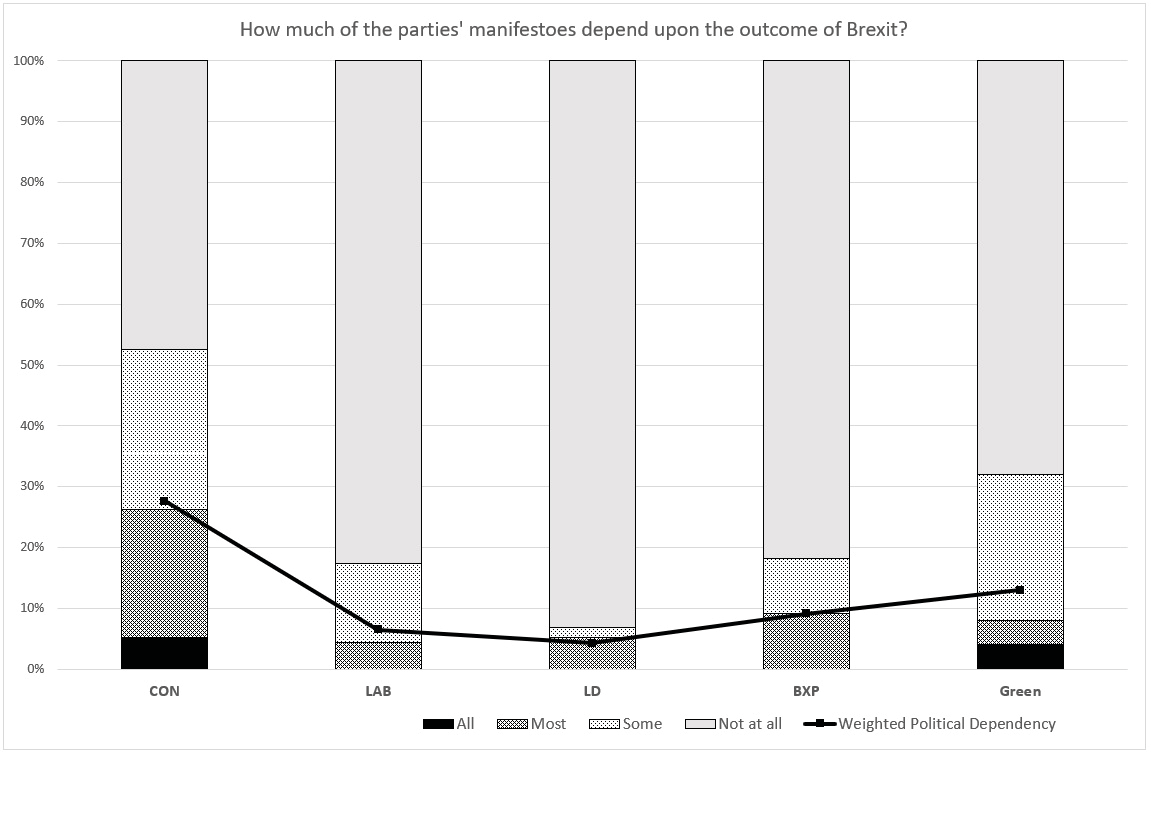This post was originally part of the “UK Election Analysis 2019” project, run by Dan Jackson, Einar Thorsen, Darren Lilleker and Nathalie Weidhase at Bournemouth.
One of the defining features of British politics in recent decades has been the critical discussion of European integration. And this election was called because of a major issue about the European Union (EU). So surely this is the apotheosis of euroscepticism?
Well, not really.
If we understand euroscepticism to be about challenging some aspect of European integration, then we’ve seen hardly any expression of that during the 2019 campaign.
What there has been is much discussion about fulfilling the result of the 2016 referendum on EU membership, but couched entirely in terms of democracy and legitimacy in the British political system. “get Brexit done” says nothing about the EU and everything about the UK.
This might seem to be a narrow academic question, one of definitions, but it reflects the troubled place of ‘Europe’ in the British political debate.
Consider that the only extensive critique of the EU and its operation came from the Green Party, who devoted several pages of their manifesto to outlining reforms at the constitutional, institutional and policy levels, even as they strongly advocated continued membership.
By contrast, neither the Conservatives nor the Brexit Party discussed the nature of the EU per se, but only the necessity of securing withdrawal (and a new trade agreement in the Tories’ case).
This is not to say that the EU hasn’t been a major part of the political discussion, but rather to argue that euroscepticism is much more about the national context than the European one.
Consider the party manifestoes.
Given the centrality of Brexit, one might anticipate that much of their wider programmes would depend upon the particular form of relationship with the EU that they sought to secure. That might be because being out of the EU might open up some political paths not currently available, or because being in the EU allows the UK to secure changes within the organisation.

With the usual caveats about the difficulties of weighting the significance of different manifesto commitments, we can still see from the graph that this is not actually the case.
By breaking down manifestoes into their sections and gauging the extent which there is a dependency, it is quickly evident that for all parties, most of what they propose has nothing to do with the EU at all, and in most of the remaining cases, it hasn’t got much to do with it either.
Even in the case of the Tories, with the highest dependency at roughly a quarter of their manifesto, much hangs on the specifics of the future relationship that they would negotiate with the EU. That relationship is presented as a list of objectives, rather than as an engagement with the functioning of the European Union itself, as underlined by the rather confused language on Northern Ireland.
In short, the EU is largely externalised from the British political debate.
It is there, but as a largely abstract entity to be either got away from or to be embraced closely. For those that would leave, the Union is presented as a body that will simply give the UK what it wants – monies owed, deals delivered, access granted – without any sense of how the eurosceptic critiques of the past – self-interest, inefficiency, not listening to the UK – might anyhow make this problematic, especially as the UK moves from being a member state to a third country.
But the pro-European side also raises issues. While the years since the referendum have seen a blossoming of overt European rhetoric and action, that has not been accompanied by the development of more grounded and engaged view of how the EU works.
In essence, this general election has been a continuation of very polarised views on the EU: those in support of membership seem very largely bound to treat it uncritically, while those against mostly wish it away.
Whether either approach is one that will withstand the realities of the coming year, as the country moves into the next stage of Brexit, is highly questionable. What is clear already at this point is that euroscepticism has been better at providing questions than answers.
